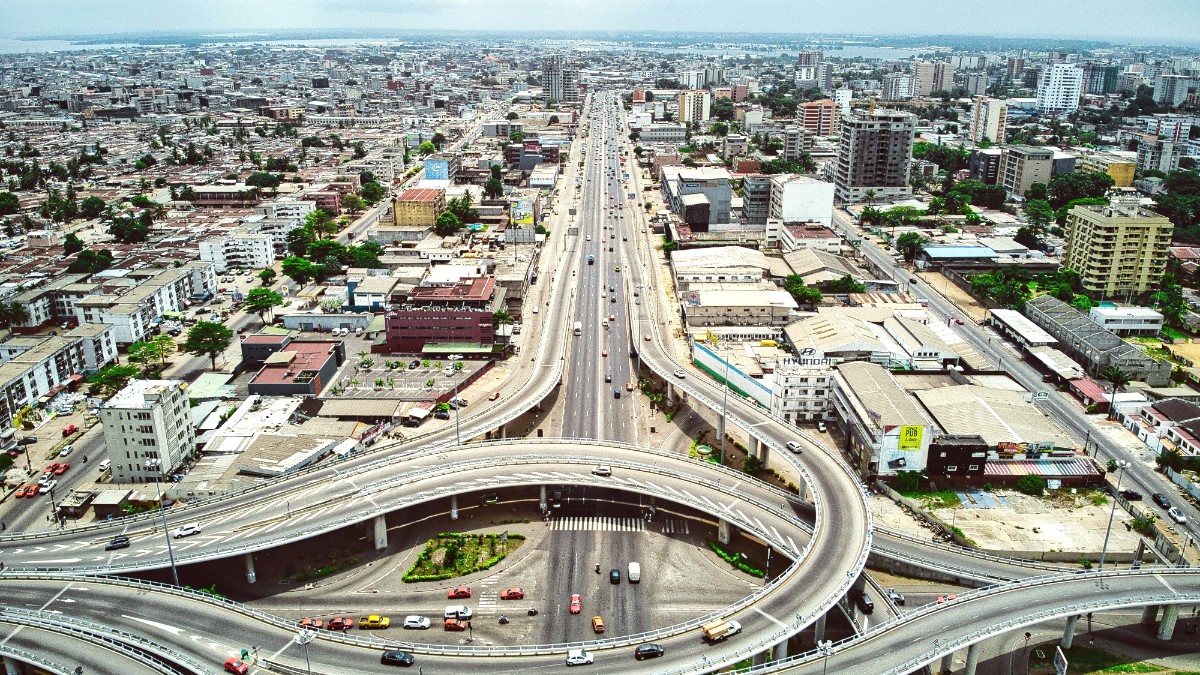
Cote Divoire
The Abidjan Transport Company (SOTRA) operates a network of large blue-and-white buses that cover most parts of the city. They are reliable and affordable during the day, though very crowded during peak hours.
These privately owned minibuses operate on fixed routes. Often overcrowded and driven daringly. They offer a fast, if adventurous, way to cover distances.
While SOTRA provides some information at major bus stops, comprehensive route maps are difficult to find online. Major hubs for buses include Adjamé, Treichville, Plateau, and Yopougon. Routes for these shared vehicles are typically learned by asking locals or observing traffic flow. Drivers often call out destinations.
Main piers are conveniently located in areas: Port de Commerce and Immeuble SOTRA in Plateau, Gare Sud in Treichville, Riviera and Saint Jean in Cocody, and Gare de Yopougon in Yopougon.
SOTRA: Purchase tickets onboard or at kiosks at major bus stops. Fares are fixed per ride, typically 200-500 XOF. Gbaka/Woro-Woro: Pay fares directly to driver or conductor. Woro-woro fares are generally fixed; Gbaka fares might need slight negotiation. Bateaux-Bus: Buy tickets at the pier before boarding. Fares fixed per trip, usually around 200-500 XOF.
Reliable and affordable. Crowded during peak hours.
Fast, adventurous, affordable for short distances.
Scenic, avoids road traffic. Unique city views.
Generally not accessible.
Taxis are plentiful in Abidjan and a flexible way to get around.
You need a valid national driving license and an International Driving Permit (IDP). Most companies require drivers to be 21-25 years old.
International chains like Hertz and Avis are present. Local companies also exist. Expect 35,000-75,000 XOF/day. DiscoverCars.com for bookings.
Less common for tourists. Not recommended due to challenging traffic, road safety, and security risks.
Road conditions vary. Paved main roads are decent, but secondary roads can be challenging. Traffic congestion in Abidjan is significant, especially during peak hours. Driving habits can be aggressive. Remain cautious and aware.
Bateaux-Bus (SOTRA) offer an efficient and scenic way to cross the Ebrié Lagoon, connecting various districts.
Unique city views
Not commonly available. Group tours usually utilize private mini-buses or coaches for sightseeing.
Private tours preferred
Very limited. Public transport, sidewalks, and many attractions are not designed for easy access for individuals with mobility challenges.
Private car recommended
Abidjan offers a dynamic and urban experience. With careful planning and an open mind, your visit can be both enriching and smooth. Embrace the local culture, stay mindful of safety, and enjoy the unique charm of this West African metropolis.
Félix Houphouët-Boigny International Airport (ABJ) is the main gateway. Allow ample time for airport procedures. Direct flights from Europe and the Middle East are common.
Navigate the city using orange taxis (negotiate fares or use Yango), SOTRA buses, gbaka, or scenic bateau-bus on the lagoon. Consider private drivers for more comfort.
Discover diverse neighborhoods like Plateau, Treichville, Marcory, and Cocody. Enjoy the markets, local maquis, and cultural sites that make Abidjan unique.
Abidjan's transportation landscape is a blend of traditional modes and modern solutions. Embracing local transport like the bateau-bus or shared taxis can be a rewarding cultural experience.
Planning your routes, especially during peak hours, and prioritizing safety in your choices will make your movements around the city smoother and more enjoyable. Consider World Nomads, SafetyWing, or Insubuy for travel insurance.